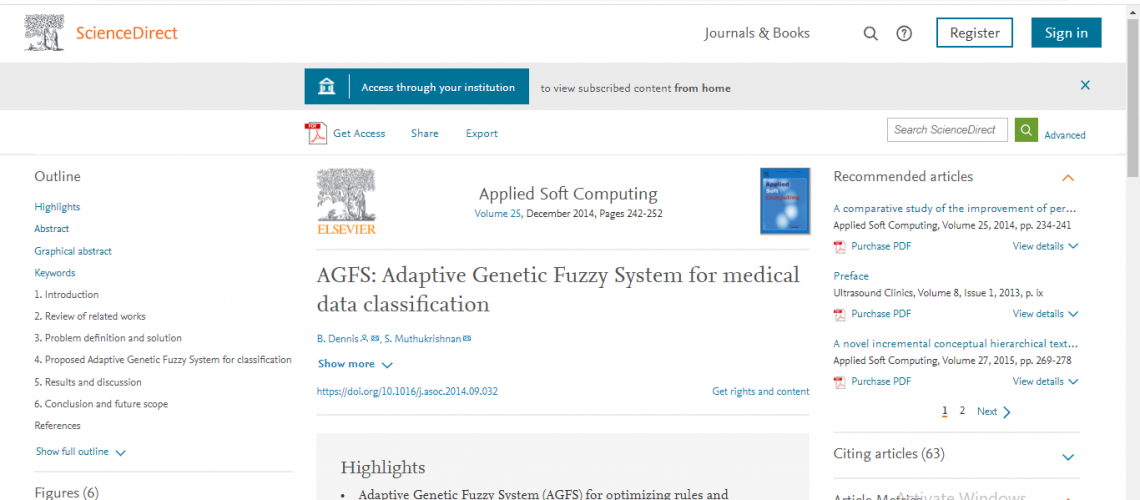In the field of medical data analysis, accurate classification of patient data is of paramount importance for effective diagnosis, treatment, and patient care. With the exponential growth of medical data, traditional classification methods often fall short in providing accurate and reliable results. However, the emergence of innovative techniques, such as adaptive genetic fuzzy systems (AGFS), has opened new avenues for improved medical data classification. In this blog post, we will explore the concept of AGFS and its application in medical data classification, highlighting its potential benefits and limitations.
Understanding Adaptive Genetic Fuzzy Systems (AGFS):
Adaptive Genetic Fuzzy Systems (AGFS) combine the principles of fuzzy logic, genetic algorithms, and machine learning to create an intelligent classification framework. Fuzzy logic enables the system to handle imprecise and uncertain data, while genetic algorithms optimize the parameters and structure of the fuzzy system to enhance its performance. This adaptive nature of AGFS allows it to evolve and improve over time, making it particularly suitable for complex and dynamic medical data classification tasks.
Benefits of AGFS in Medical Data Classification:
- Handling Uncertainty: Medical data often contains inherent uncertainties due to various factors, such as measurement errors, missing values, and subjective interpretations. AGFS, with its ability to handle imprecise and uncertain data, can effectively model and interpret such information, leading to more accurate and robust classifications.
- Interpretability: Unlike some black-box machine learning models, AGFS produces fuzzy rules that are human-readable and interpretable. This transparency is crucial in the medical field, where clinicians and researchers need to understand the reasoning behind classification decisions. The interpretability of AGFS facilitates trust, collaboration, and knowledge extraction from the system.
- Adaptive Learning: AGFS has the capability to adapt and evolve its fuzzy rules based on changing medical data and classification requirements. As new data becomes available, the system can dynamically adjust its rule base, membership functions, and other parameters to optimize classification accuracy. This adaptability ensures that the system remains relevant and effective even as medical knowledge advances.
- Handling High-Dimensional Data: Medical datasets often involve a large number of features, making traditional classification methods computationally expensive or prone to overfitting. AGFS leverages genetic algorithms to search for the optimal subset of features, effectively reducing dimensionality and improving classification performance.
Limitations and Challenges:
While AGFS shows promise in medical data classification, there are a few limitations and challenges to consider:
- Computational Complexity: The optimization process involved in AGFS, particularly the use of genetic algorithms, can be computationally intensive. As medical datasets grow in size, the time required for training and optimization may increase significantly. Efficient implementation and parallel processing techniques can help mitigate this challenge.
- Rule Base Complexity: AGFS generates fuzzy rules that are understandable to humans, but as the complexity of the medical data and classification tasks increases, the rule base can become large and intricate. Managing and interpreting a large number of rules may pose challenges and require additional efforts in rule simplification and visualization.
- Data Quality and Bias: AGFS, like any classification system, heavily relies on the quality and representativeness of the training data. Biases or errors in the data can propagate into the fuzzy rule generation process and affect the classification accuracy. Careful data preprocessing, selection, and evaluation are essential to ensure reliable results.



